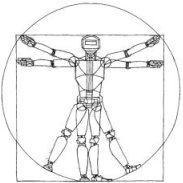Robotics: Science and Systems XVI
Deep Learning Tubes for Tube MPC
David Fan, Ali Agha, Evangelos TheodorouAbstract:
Learning-based control aims to construct models of a system to use for planning or trajectory optimization, e.g. in model-based reinforcement learning. In order to obtain guarantees of safety in this context, uncertainty must be accurately quantified. This uncertainty may come from errors in learning (due to a lack of data, for example), or may be inherent to the system. Propagating uncertainty forward in learned dynamics models is a difficult problem. In this work we use deep learning to obtain expressive and flexible models of how distributions of trajectories behave, which we then use for nonlinear Model Predictive Control (MPC). We introduce a deep quantile regression framework for control that enforces probabilistic quantile bounds and quantifies epistemic uncertainty. Using our method we explore three different approaches for learning tubes that contain the possible trajectories of the system, and demonstrate how to use each of them in a Tube MPC scheme. We prove these schemes are recursively feasible and satisfy constraints with a desired margin of probability. We present experiments in simulation on a nonlinear quadrotor system, demonstrating the practical efficacy of these ideas.
Bibtex:
@INPROCEEDINGS{Fan-RSS-20,
AUTHOR = {David Fan AND Ali Agha AND Evangelos Theodorou},
TITLE = {{Deep Learning Tubes for Tube MPC}},
BOOKTITLE = {Proceedings of Robotics: Science and Systems},
YEAR = {2020},
ADDRESS = {Corvalis, Oregon, USA},
MONTH = {July},
DOI = {10.15607/RSS.2020.XVI.087}
}
